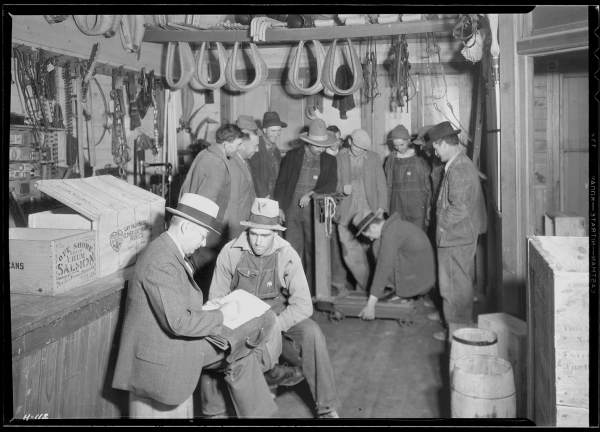Author Archive

HANDBOOK HELPER EPISODE 31
RESIGNATIONS AND TERMINATIONS POLICY
Ending the employment relationship can be relatively painless if properly conducted in adherence to a well-written handbook policy and legally compliant procedures.

Federal Law Changes Require New Mid-Year Posters
While ordinarily a January 1 activity, some changes in federal laws are requiring employers to update their employment law posters as of July 1, 2023. The changes are triggered by the Providing Urgent Maternal Protections for Nursing Mothers Act (PUMP Act) and the Pregnant Workers Fairness Act (PWFA).

CAUTIONARY TALE EPISODE 70
KEEP EMPLOYEES SAFE
When people read about a deranged gunman murdering seven agricultural workers at two farms in Half Moon Bay, they likely gave no thought to possible OSHA safety citations for the employers. However, Cal/OSHA has now investigated those incidents and is proposing penalties against California Terra Garden, Inc. (Terra) and Concord Farms Inc. (Concord) of $113,800 and $51,770 respectively.

HANDBOOK HELPER EPISODE 30
TARDINESS POLICY
Tardiness is any time an employee arrives late to work or is not ready to work at the start of a scheduled shift.
Unexcused or excessive tardiness can often lead to disciplinary action. However, employers must administer tardiness standards in a uniform, nondiscriminatory manner. No-fault attendance policies, such as automatic discipline for five or more lateness in a three-month period should never include legally protected reasons, e.g., reasonable disability accommodations, mandatory paid sick leave, pregnancy disability leave, jury duty, or Labor Code 1139 “emergency conditions.”

CAUTIONARY TALE EPISODE 69
TAQUERIA TANKED AFTER PRIEST PRANK
While the truth has been frequently known to set individuals free, Sacramento-based Taqueria Garibaldi has received a $140,000-plus reality adjustment after reportedly attempting to intimidate staff by having a fake priest extract confessions during a U.S Department of Labor investigation.

HANDBOOK HELPER EPISODE 29
ATTENDANCE AND ABSENCE POLICY
Attendance and absence policies should of course make clear that turning out as scheduled is expected. The care comes in listing excused or authorized absences, including legally-protected sick leave, pregnancy disability leave, on-the-job injuries or illnesses, and, as of January 1, 2023, permitted “emergency condition” absence under California Labor Code section 1139. That law protects covered employees for refusing to report to, or leaving, a workplace on a reasonable belief of an unsafe “emergency condition” defined…

BOOGIE DOWNER
Misogynistic Music as Workplace Sexual Harassment
Management should put some thought into the content of music transmitted over workspaces. In Sharp v. S&S Activewear, L.L.C. (June 7, 2023), the federal appeals court for the western states drew the line between at least tolerably appropriate and unlawfully offensive.

NO MORE ROOM FOR ZOOM
I-9 Rules Are Tightening July 31, 2023
As the pandemic descended in March 2020, restricting workforce millions to their homes, U.S Immigration and Customs Enforcement (ICE) suspended the in-person verification requirement for I-9 supporting documents, permitting remote methods – e.g., email, fax, and video platforms – to show proof of citizenship or other OK-to-work status.

CALIFORNIA MINIMUM WAGE RATES UPDATE
From January 1, 2023 through December 31, 2023, California state minimum wage is $15.50 per hour for all employers, regardless of size.

HANDBOOK HELPER EPISODE 28
PERFORMANCE EVALUATIONS POLICY
Employee evaluations can be an excellent tool for enhancing management-workforce communications if properly conducted by well-written handbook policy.
